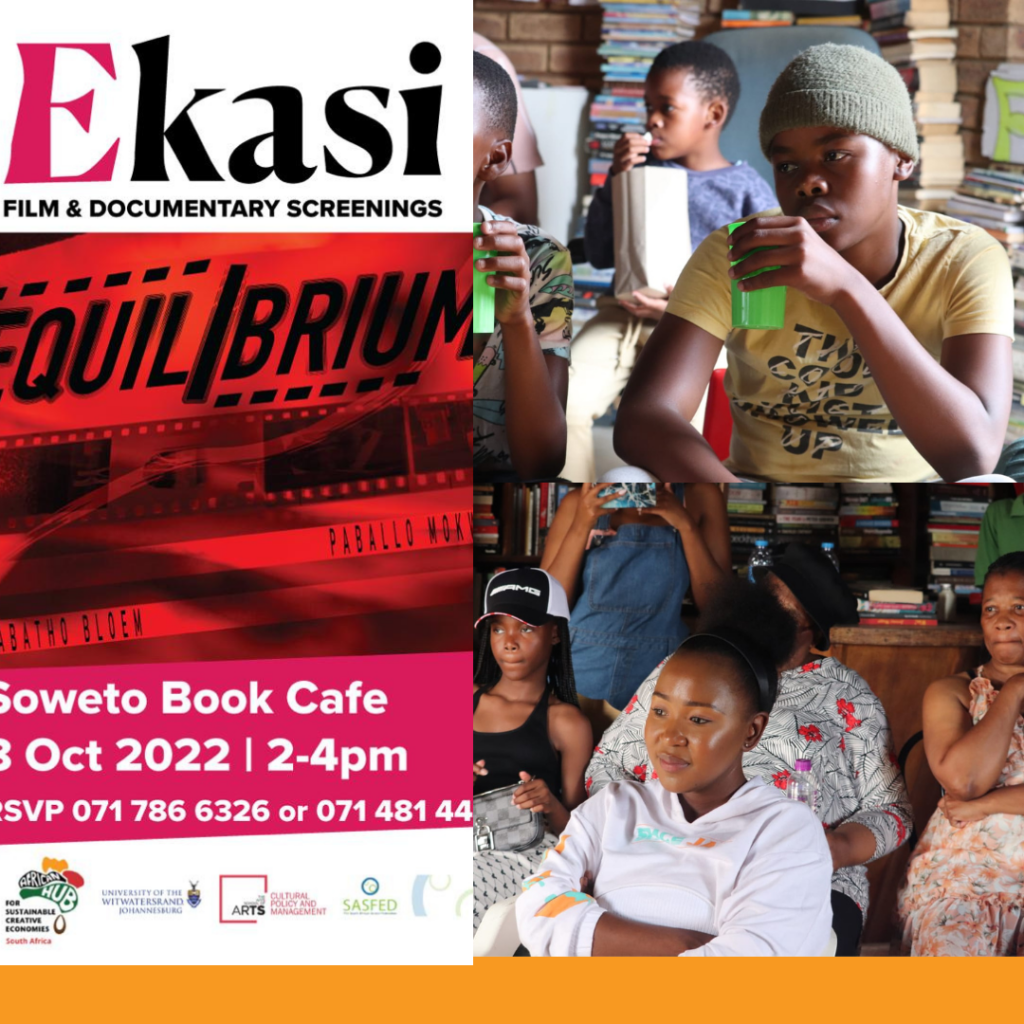
“EKASI DOCUMENTARY FILM SCREENINGS” – REVIVING THE CULTURE OF THE ‘BIOSCOPE’ AT THE SOWETO BOOK CAFE.
By Vuyo Madyibi
“Every child is an artist. The problem is how to remain an artist once we grow up.” – Pablo Picasso. The Ekasi Documentary Film Screenings came together at the first inception meeting to discuss the ease and success of their collaboration as well as to discuss future collaborations with great ebullience. The project will screen selected documentary films every Saturday for 4 consecutive weeks with the aims to address the lack of interest in cinema through the sourcing and screening various local and international documentaries which focus on various thematic issues.
The team expressed their gratitude to the AHSCE Voucher Scheme for allowing the execution of the project but also to one another, as they earnestly recounted how the collaboration began and how the team’s strengths complimented one another. Tonderai Chiyindiko, actor and creative industries consultant-researcher, initially approached Thami Mazibuko, owner of the Soweto Book Cafe, to make use of the cafe in Zondi for their alternative film screenings proposal. Thereafter, the collaborators, Traver Mudzonga, art director and researcher and lastly, Sithembile Nyanda, actress and employee of Atlas Studios joined.
The team divulged how their various skills are what largely culminated into the success of the project and the ease of their teamwork and simultaneously expressed immense respect and admiration for one another. Traver’s experience allowed for attentive budgeting, whilst Sithembile’s immersion in the film screening field concurrently allowed for access to directors, producers as well as invaluable insight into how to successfully screen films. Tonderai’s consultant experience positioned him as the group-appointed leader. And Thami’s contribution of the Soweto Book Café space as well as the trust and involvement in the Zondi community ensured the engagement and attendance of the community.
The project found its success through many facets. Firstly, the first screening of the film Equilibrium directed by Paballo Mokwena, although aimed at the youth, attracted audiences of all ages which exceeds its expectation of reviving the communal cinematic culture and eliciting a greater appreciation for arts. Further emphasising this, was a community member’s sentiments who came forward and said that the screening brought together neighbours, who otherwise wouldn’t speak. Secondly, the project sparked conversation after the screening wherein community members were eager to discuss the pertinent issues the film addressed such as mental health in a South African context. Although the film was not didactic in nature, it inspired a process of learning and excitement amongst viewers through its content. “You see from the first the first few minutes they’re shocked because they’ve never met a producer before they’ve not met someone who has created something standing right in front of them,” Sithembile’s words taken from the meeting echo the effects of the screening from a content to a production perspective as the South African films are now localised to the point where the youth find inspiration in making films as they are face to face and are able to converse with those who already have.
The team faces a challenge in their growing numbers, and the subsequent need to cater for more through their budget. However, they are determined to do so as they conferred that even if they were not recipients of the voucher scheme, their belief in their idea will push them to make it happen regardless. Through the screening of relatable and relevant films to the community, they want to create social intervention through conversation. They are confident and hopeful for the future of their alternative screenings to be a consistent and sustainable project as the grant has provided them with a proof of concept to seek further funding.
